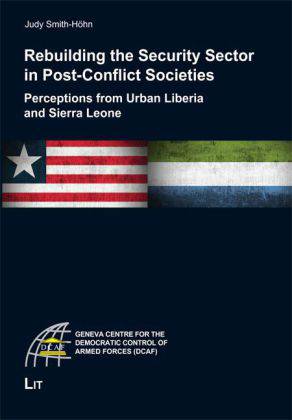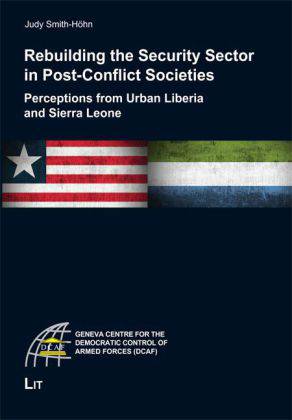
Bedankt voor het vertrouwen het afgelopen jaar! Om jou te bedanken bieden we GRATIS verzending (in België) aan op alles gedurende de hele maand januari.
- Afhalen na 1 uur in een winkel met voorraad
- In januari gratis thuislevering in België
- Ruim aanbod met 7 miljoen producten
Bedankt voor het vertrouwen het afgelopen jaar! Om jou te bedanken bieden we GRATIS verzending (in België) aan op alles gedurende de hele maand januari.
- Afhalen na 1 uur in een winkel met voorraad
- In januari gratis thuislevering in België
- Ruim aanbod met 7 miljoen producten
Zoeken
Rebuilding the Security Sector in Post-Conflict Societies: Perceptions from Urban Liberia and Sierra Leone
Judy Smith-Höhn
€ 29,45
+ 58 punten
Omschrijving
In Liberia and Sierra Leone, strategies to reform and reconstruct the security sector have centred on re-establishing the state's monopoly on the use of force. However, little attention is given to the array of non-state actors that often play a major role in how individuals and communities experience security. Rebuilding the Security Sector in Post-Conflict Societies: Perceptions from Urban Liberia and Sierra Leone seek to address this gap by applying a human security approach to security provision across these two contexts. A key point of departure is that in the long run there can be no alternative within post-conflict societies to a locally owned security sector. Operationalising the concept of local ownership means that internationally-supported security sector reform (SSR) activities need to reflect these local realities. As explored within this study, fostering synergies between state and non-state security actors may therefore offer an important avenue to support more sustainable, legitimate SSR efforts.
Specificaties
Betrokkenen
- Auteur(s):
- Uitgeverij:
Inhoud
- Aantal bladzijden:
- 256
- Taal:
- Engels
- Reeks:
Eigenschappen
- Productcode (EAN):
- 9783643800749
- Uitvoering:
- Paperback
- Afmetingen:
- 162 mm x 235 mm
- Gewicht:
- 464 g

Alleen bij Standaard Boekhandel
+ 58 punten op je klantenkaart van Standaard Boekhandel
Beoordelingen
We publiceren alleen reviews die voldoen aan de voorwaarden voor reviews. Bekijk onze voorwaarden voor reviews.









